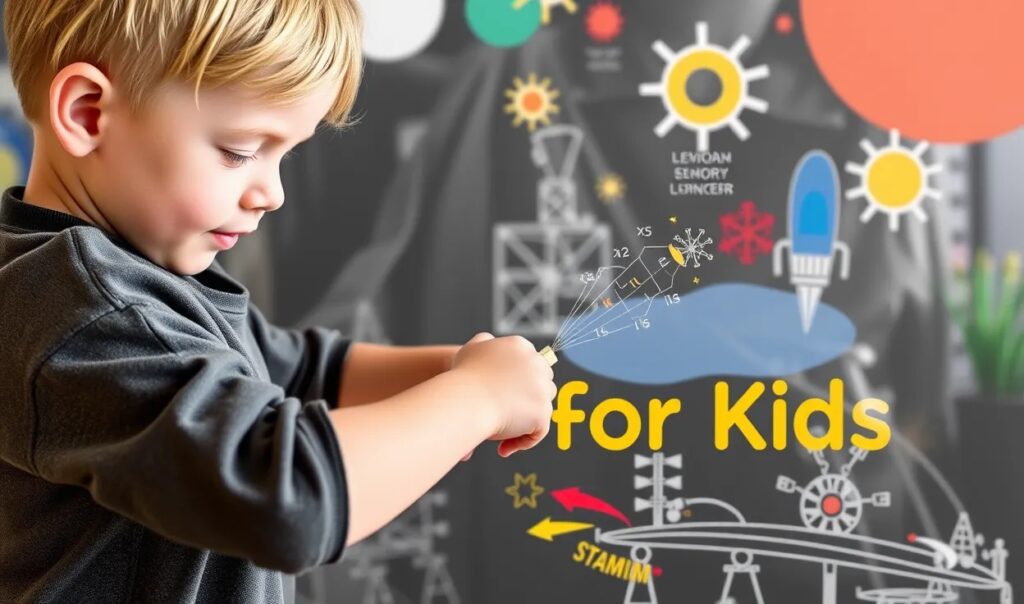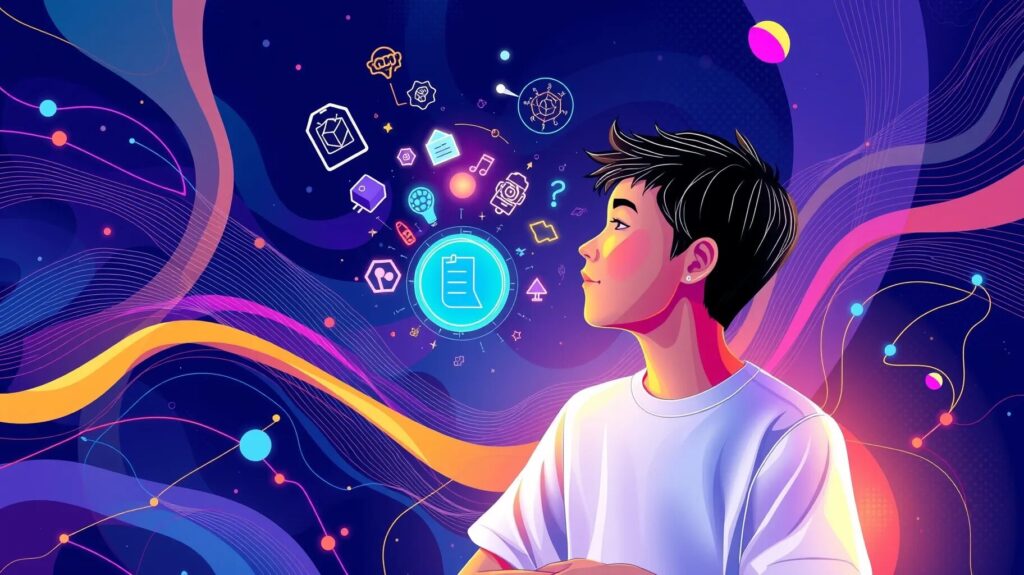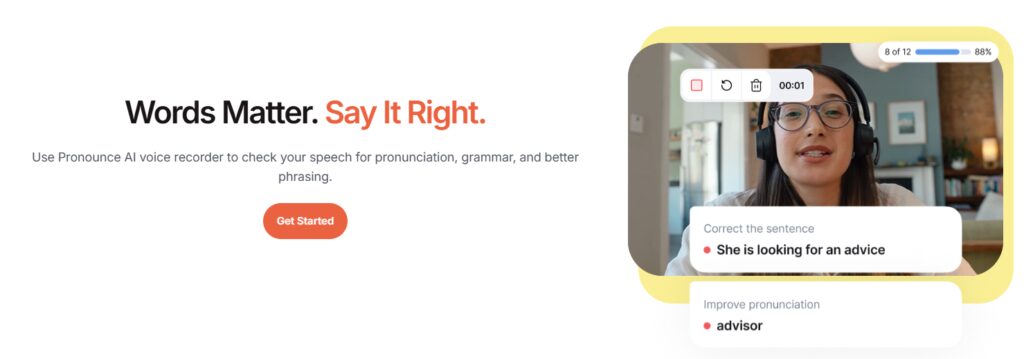
With the rise of AI-powered education apps, students and learners of all ages are turning to technology for personalized, efficient learning experiences. But with countless apps on the market, it can be hard to tell which ones deliver real value.
We’ll dive into some of the most popular AI education apps, examining what sets them apart and how they measure up in effectiveness.
How AI Is Shaping Education
AI in Education: From Adaptive Learning to Instant Feedback
AI-driven education platforms are transforming the way we learn. These apps adapt to each learner’s pace, knowledge level, and style, providing a level of personalization once only possible in one-on-one tutoring. Advanced algorithms analyze user behavior, instantly adjusting questions or difficulty levels to match a student’s progress. And feedback is immediate—users often receive instant corrections on errors, which helps reinforce learning in real time.
Apps like Quizlet and Photomath utilize AI to give personalized study recommendations and correct answers instantly, making study sessions much more effective. Students can now tackle problem areas faster, and receive specific, constructive feedback without needing an actual teacher present.
The Rise of Language Learning with AI
Language learning has especially benefited from AI-driven apps. Apps like Duolingo and Babbel use machine learning to track user progress, pinpointing where learners struggle and adjusting lessons accordingly. They provide real-time pronunciation feedback and context for vocabulary, helping learners correct mistakes on the spot. By doing so, these platforms help students build a solid foundation in their target language faster than traditional methods.
The value here isn’t just in vocabulary or grammar correction—AI algorithms analyze patterns in mistakes, recognizing if a user tends to miss certain types of phrases or pronunciation. These insights shape future lessons, leading to a more holistic learning experience.
Making STEM More Accessible with AI Tools
For STEM subjects (science, technology, engineering, and math), AI has been a game-changer. Apps like Photomath and Khan Academy’s AI-driven practice sessions help students solve complex math and science problems step-by-step. These platforms use AI algorithms to break down solutions, explaining each part of the process, so users understand the logic rather than memorizing formulas.
Photomath, for example, enables students to take a photo of a math problem, then watch as it provides not only the solution but also an in-depth explanation. This type of assistance can be invaluable, especially for high school and college students who may struggle with abstract concepts.
Top AI Education Apps on the Market

Duolingo: The Language Learning Powerhouse

Duolingo is a language learning app that uses AI to personalize each lesson based on the learner’s pace and progress. With real-time pronunciation guidance and adaptive review cycles, Duolingo helps users remember words and phrases by gradually introducing new material while revisiting challenging topics.
Key Benefits:
- Gamified learning experience keeps motivation high.
- Daily streaks and rewards encourage consistency.
- AI algorithms adapt to individual progress, making lessons increasingly challenging based on the learner’s growth.
For beginner to intermediate language learners, Duolingo’s AI-driven approach offers a steady path to fluency. However, advanced learners may find the app lacks depth in nuanced language skills, like conversation flow and advanced grammar.
Khan Academy: A Comprehensive Learning Hub

Khan Academy has integrated AI features to enhance learning in various subjects, including math, science, history, and more. With personalized practice recommendations and in-depth progress tracking, it helps students zero in on weaknesses and build skills in specific areas.
Key Benefits:
- Offers a wide range of subjects and topics.
- Adaptive learning paths adjust to user strengths and weaknesses.
- Detailed feedback on quizzes and exercises.
While Khan Academy is well-regarded for its comprehensive educational content, its AI capabilities are still evolving. The app’s adaptive quizzes are useful for mastering topics but lack the advanced interactivity that some other AI-driven tools provide.
Photomath: Math Solving Made Simple

Photomath stands out as an app that lets users take a photo of a math problem and receive a step-by-step solution. Its AI-powered recognition technology not only decodes typed and handwritten math problems but also provides users with detailed explanations on how to reach the solution.
Key Benefits:
- Immediate, clear solutions for a wide range of math problems.
- Step-by-step explanations make learning more accessible.
- Works well for visual learners who benefit from seeing problems broken down.
This app is ideal for students tackling algebra, calculus, and other challenging subjects. However, while it’s great for understanding problem-solving techniques, it may encourage reliance on quick answers rather than deep learning if used improperly.
Quizlet: Enhancing Study Efficiency with AI

Quizlet has leveraged AI to create a personalized learning experience that goes beyond simple flashcards. Its “Learn” mode uses machine learning to identify areas where users struggle, then prioritizes those cards for future review. This spaced repetition technique boosts memory retention over time.
Key Benefits:
- Efficient memorization through AI-based spaced repetition.
- Various study modes cater to different learning preferences.
- Extensive content for a broad array of subjects.
Quizlet is effective for vocabulary building and test preparation, especially when users input their own custom study material. However, some argue that Quizlet may emphasize rote memorization over critical thinking.
Comparison Table of Top Resources for AI Education Apps
| Resource | Overview | Best For | Unique Features |
|---|
| Common Sense Education | Reviews and ratings on educational tech, including AI apps. | Parents, teachers, and students seeking vetted recommendations. | In-depth evaluations on ease of use, educational value, engagement. |
| EdSurge | News and analysis on education technology and AI trends. | Educators and administrators. | Guides for AI integration in classrooms and frequent updates on tech developments. |
| The EdTech Hub | Research-based insights on digital learning tools. | Researchers, policymakers, and educators. | Focus on data-backed practices and practical applications for diverse settings. |
| Khan Academy Teacher Resources | Resources for integrating Khan Academy’s adaptive tools in classrooms. | Teachers using Khan Academy in lesson plans. | Lesson plans, guides, and strategies for using adaptive AI learning in various subjects. |
| EdTech Magazine | Covers trends and case studies in educational technology. | Educators and administrators. | Articles on best practices for implementing AI and real-world case studies. |
| TeachThought | Resources on innovative teaching strategies and AI apps. | Teachers interested in creative, critical-thinking-based AI integration. | Emphasis on creative learning, critical thinking, and engagement strategies. |
| AI for Teachers (by ISTE) | Guidance on using AI responsibly in K-12 education. | K-12 educators focused on ethical AI use. | Ethical considerations, responsible AI practices, and classroom-specific strategies. |
| Coursera and edX | Online courses on AI in education and learning design. | Educators and learners interested in AI’s role in education. | University-level courses on AI technology and its impact on learning. |
Are AI Education Apps Worth It?
The Pros and Cons of AI-Powered Learning
While AI education apps offer significant advantages, they come with trade-offs. On the positive side, these apps make learning accessible and personalized, helping users achieve better retention rates and focus on their weakest areas. However, the reliance on AI technology may diminish essential skills like critical thinking and problem-solving if learners aren’t actively engaging with the material.
Apps like Duolingo and Quizlet shine when used for specific tasks, like language acquisition or exam prep. However, in subjects requiring in-depth understanding, like higher-level math or literature, students may benefit more from human guidance or a blend of traditional learning and tech tools.
Balancing AI Tools with Traditional Learning

When to Rely on AI Apps, and When Not To
AI apps bring convenience and customization, but they’re best used alongside traditional learning methods. For instance, language learning apps like Duolingo can help build vocabulary and basic conversational skills, but to gain fluency, it’s essential to interact with native speakers or engage in immersive experiences. Similarly, Photomath may simplify complex math problems, but working through the math independently strengthens problem-solving abilities and critical thinking—skills that are essential in academic and real-world contexts.
Using AI tools to reinforce skills and understanding while supplementing them with human instruction creates a balanced approach. Teachers can guide students on how to engage more deeply with the material while AI tools handle repetitive exercises and personalized practice.
Practical Tips for Using AI Apps Effectively
To get the most out of AI learning apps, try incorporating them into a routine that includes both interactive learning and self-driven study:
- Set clear goals for each app session, focusing on specific skills or concepts you want to master.
- Balance quick exercises with deeper study sessions, especially for complex topics where you may need to pause and reflect.
- Engage with other learners through study groups or discussion boards to gain diverse perspectives, especially for subjects like literature or philosophy.
- Use AI apps for test preparation, where the apps’ ability to deliver practice questions and track progress can help ensure you cover all necessary material.
The Future of AI Education Apps: Trends to Watch
Enhanced Personalization Through Advanced AI
AI-driven education apps are continuously evolving. Future versions are likely to feature even more advanced personalization based on user performance, emotional engagement, and even cognitive load. Imagine an app that adjusts not just for the difficulty of content, but also for the time of day you study best or when you’re most focused. This level of dynamic personalization could make learning more efficient and effective, tailoring experiences even closer to each user’s unique style and circumstances.
Real-Time Interaction and Feedback
Developers are increasingly exploring real-time interaction capabilities, such as AI tutors that can answer questions, initiate reviews on weak areas, and offer feedback during exercises. Language learning apps, in particular, are likely to incorporate even more sophisticated conversational AI to mimic real-life conversation and cultural nuances. This would be invaluable for learners who want immediate, detailed feedback without needing a live tutor.
Augmented Reality (AR) and Virtual Reality (VR) are also making their way into AI education, enabling students to immerse themselves in simulated environments that make subjects like history, biology, and physics more engaging. Imagine a biology app that could let you explore a 3D model of the human body or a history app that takes you through ancient cities virtually.
AI-Powered Tutoring for More Complex Subjects
Future AI education tools are likely to expand into more complex subjects such as philosophy, advanced sciences, and critical thinking. This will require AI to recognize not only correct and incorrect answers but to engage learners with more open-ended questions, debates, and exploratory discussions. Such tools would be beneficial for developing nuanced understanding and promoting higher-order thinking skills.
Measuring the Impact: Do AI Education Apps Really Help?
Success Stories and User Satisfaction
A growing body of research and user testimonials indicate that AI education apps boost retention, engagement, and accessibility. Students using adaptive learning platforms like Khan Academy have shown significant improvement in subjects such as math, as the app’s adaptive nature tailors exercises to each user’s progress. Success stories also highlight how AI apps assist non-traditional learners—whether they’re adults returning to education, students with learning challenges, or those in underserved areas.
In a recent survey, over 70% of students reported that AI-powered education tools helped them grasp subjects faster and increased motivation to study consistently. However, it’s worth noting that this boost in efficiency doesn’t necessarily translate to in-depth understanding. Many students benefit most when using these apps as supplementary tools rather than complete replacements for other methods of learning.
Areas for Improvement
Despite their effectiveness, AI education apps have limitations. Since most apps lack the ability to engage users in critical conversations or detailed discussions, they’re better suited to foundational learning rather than advanced studies. Furthermore, not all subjects lend themselves to AI-driven education. While math, language, and basic sciences are ideal candidates, abstract and interpretative subjects like literature or philosophy require a human touch to inspire a deeper appreciation and understanding of complex themes.
Additionally, users may face challenges with over-reliance on quick answers, especially with apps like Photomath. Although these apps are helpful for learning problem-solving techniques, using them excessively can lead students to rely on the app rather than developing their own analytical abilities.
Final Thoughts: Choosing the Right AI Education Apps for Your Needs
Selecting the right AI education app depends largely on the learner’s goals, subject matter, and personal learning style. For a structured, foundational approach to language or test preparation, apps like Duolingo and Quizlet deliver convenience and effectiveness. For STEM-focused learners who need targeted math or science support, Khan Academy and Photomath can provide the structure and clarity often needed for challenging subjects.
However, the real value of AI education apps lies in their ability to complement—not replace—traditional learning methods. When used strategically and paired with independent study or real-world application, these tools offer a valuable boost, making learning more accessible, engaging, and tailored to individual needs. The future of education is likely to involve a blend of technology-driven insights and human interaction, maximizing the strengths of both.
FAQs
How do AI education apps personalize learning?
AI education apps personalize learning by using algorithms to track each user’s progress, strengths, and weaknesses. Based on this data, the app adapts the content, difficulty level, and even timing of lessons to suit individual needs. This customization helps users focus on areas where they need improvement while moving quickly through material they already understand.
Can AI apps fully replace traditional learning methods?
AI apps are best suited as supplementary tools rather than full replacements for traditional learning. While they provide effective practice and reinforcement, they often lack the critical thinking, creativity, and in-depth discussion that human teachers or mentors can offer. Using these apps alongside classroom instruction or personal study can offer a more complete learning experience.
Are there AI apps suitable for young children?
Yes, some AI education apps are specifically designed for young children, focusing on skills like reading, math, and language basics. Apps like Khan Academy Kids and Lingokids provide engaging, age-appropriate activities. These apps use AI to keep kids motivated, adjust content to their pace, and make learning feel like play.
How secure is my data on AI education apps?
Most reputable AI education apps take data security seriously, using encryption and other security measures to protect user information. However, it’s always a good idea to check each app’s privacy policy. Many apps collect data on learning habits and progress to improve personalization, but they should have clear policies about how this data is stored and used.
Do AI apps work offline?
Some AI apps, like Duolingo and Quizlet, offer limited offline functionality, allowing users to access previously downloaded lessons or practice sets without an internet connection. However, most apps need to be connected to the internet for full features, updates, and real-time data analysis. Always check the app’s specifications to know which features are available offline.
How do AI apps support language learning?
AI language learning apps use machine learning to assess user progress, pronunciation, and comprehension. They often provide real-time feedback on pronunciation and adjust lessons to review challenging areas. Apps like Duolingo and Babbel, for example, focus on vocabulary, grammar, and conversational skills, making it easier to build language skills incrementally.
Are AI education apps useful for exam preparation?
Yes, many AI apps are highly effective for exam preparation, especially for standardized tests. Apps like Quizlet and Khan Academy offer practice tests, quizzes, and adaptive learning paths that help students retain material and focus on weaker areas. These tools are especially useful for building vocabulary, memorizing facts, and practicing math problems.
Can AI education apps help with advanced subjects?
While AI apps excel in foundational subjects, their effectiveness for advanced subjects can vary. For higher-level math, complex sciences, or critical thinking topics, AI apps can provide practice problems and step-by-step solutions, but they may lack the depth required for truly advanced learning. Some apps like Khan Academy do offer advanced modules, but human interaction is often beneficial for complex subject mastery.
Are AI education apps suitable for adult learners?
Absolutely! AI education apps cater to learners of all ages, including adults. Many apps, like Coursera and Babbel, offer courses specifically for adult learners, focusing on professional skills, language acquisition, and advanced topics. These platforms often provide self-paced options, which is ideal for adults juggling work, family, and other responsibilities.
How do AI apps support students with learning disabilities?
AI apps are increasingly geared toward accessible learning for students with disabilities. Some apps, like Khan Academy and Microsoft Learning Tools, incorporate features such as text-to-speech, closed captioning, and customizable text formats. These tools can help students with dyslexia, ADHD, and other learning differences by adapting to their unique needs and providing a more inclusive learning experience.
Can AI apps help students develop critical thinking skills?
AI education apps are mainly designed for foundational learning and practice, which can sometimes limit their impact on critical thinking. However, certain platforms, like Socratic and Khan Academy, encourage students to explore conceptual understanding and problem-solving. While AI apps are improving in this area, they are still most effective when combined with activities that promote independent analysis and discussion.
Are there any free AI-powered education apps?
Yes, several high-quality AI education apps are available for free. Khan Academy, Duolingo, and Photomath offer free versions with substantial content, although premium upgrades are often available for more advanced features. These free versions provide robust tools for foundational subjects and are widely accessible to a range of learners.
How frequently should students use AI education apps?
The ideal usage depends on individual goals and subject areas, but consistency is key. Many students benefit from using AI education apps daily, especially if they’re working toward a specific goal, like improving math skills or learning a new language. Setting aside 15-30 minutes a day can help build skills without overwhelming students or causing fatigue.
Do AI education apps support collaborative learning?
Some AI education apps, like Quizlet, allow users to collaborate by creating and sharing flashcards or study sets with classmates or study groups. Other platforms, such as Coursera, include community forums where learners can interact, discuss topics, and support each other. However, these collaborative features are generally limited, as most AI education apps are designed for individual use rather than group learning.
How do AI apps adapt to different learning speeds?
AI education apps track each learner’s progress and adjust content accordingly. For example, when a student struggles with specific questions, the app may slow down, offer more review material, or provide additional practice. Likewise, if a student excels, the app may advance to more challenging material, ensuring that learning remains engaging and appropriately paced.
What’s the difference between AI education apps and traditional e-learning platforms?
While both types of platforms aim to support learning, AI education apps are adaptive and personalized. Unlike traditional e-learning platforms, which often provide static content like videos and quizzes, AI-powered apps use data to adjust lessons, monitor progress, and provide feedback in real time. This makes AI apps especially effective for individualized learning paths and subjects that benefit from interactive practice.
Are AI education apps effective for students with learning disabilities?
Yes, many AI education apps are designed to support diverse learning needs, making them helpful for students with learning disabilities. The adaptive nature of AI means these apps can adjust pacing, provide visual aids, and offer frequent feedback—all of which can be beneficial for students needing extra support. Some apps, like Khan Academy and Microsoft’s Seeing AI, provide accessibility features such as text-to-speech, enlarged text, and simplified explanations, making learning more accessible for students with different abilities.
Do AI apps improve learning retention?
AI apps often use spaced repetition and adaptive learning techniques to improve retention. By recognizing which material a user struggles with, apps like Quizlet and Duolingo prioritize those areas for review, helping learners retain information over the long term. This method—called “spaced repetition”—works by revisiting challenging material at strategic intervals, which can significantly boost memory retention and make study sessions more efficient.
Are AI-powered education apps beneficial for adult learners?
AI education apps are increasingly popular among adult learners seeking to acquire new skills or refresh knowledge, especially in language learning and technical fields. Apps like Coursera and LinkedIn Learning use AI to recommend courses and suggest modules based on user goals and progress. For adults balancing work and family, these apps offer flexible, tailored learning experiences that can fit into busy schedules.
Do AI education apps require an internet connection?
Most AI apps require an internet connection for full functionality, as they often depend on cloud-based AI models for adaptive learning. However, many apps now offer offline features, allowing users to access previously downloaded lessons and study materials. This can be especially useful for language or flashcard apps like Duolingo or Quizlet, where users can review vocabulary and concepts without needing Wi-Fi or data.
What role does gamification play in AI learning apps?
Gamification—a technique that incorporates game-like features such as rewards, levels, and points—plays a significant role in many AI learning apps. For example, Duolingo and Quizlet use streaks, badges, and leaderboards to motivate users. This gamified approach encourages consistency and makes learning more engaging, especially for young learners or anyone needing extra motivation. Gamification helps maintain user interest and can make daily practice feel rewarding.
How accurate are AI-generated answers and feedback?
The accuracy of AI-generated answers and feedback depends on the app and the complexity of the subject. Apps like Photomath and Khan Academy are highly accurate for math and science, as they can follow strict rules and logic. However, AI can sometimes struggle with open-ended questions, subjective content, or highly nuanced feedback, which may be better handled by a human teacher. For straightforward subjects, AI-generated feedback is generally reliable, but it’s wise to double-check answers for more complex material.
Are there any free AI education apps?
Yes, many AI education apps offer free versions with limited features. Khan Academy, for example, provides a vast library of free courses and practice exercises, funded by donations. Duolingo offers free language lessons, with an optional premium version for an ad-free experience. Similarly, Quizlet has both free and premium tiers, with the free version giving access to core features like flashcards and basic quizzes.
Recommended Resources for AI Education Apps
1. Common Sense Education
- Overview: Common Sense Education provides reviews, ratings, and insights on educational technology tools, including AI education apps. They evaluate apps based on factors like ease of use, educational value, and engagement.
- Link: Common Sense Education
- Best For: Parents, teachers, and students seeking vetted recommendations for educational apps.
2. EdSurge
- Overview: EdSurge offers news, analysis, and resources on technology in education, often covering advancements in AI-powered learning tools. They also publish in-depth guides on how educators can integrate AI into their classrooms.
- Link: EdSurge
- Best For: Educators and administrators looking to stay informed about AI trends in education.
3. The EdTech Hub
- Overview: The EdTech Hub conducts research on digital learning tools, including AI-driven applications. Their resources focus on evidence-based practices and how to effectively use educational technology in diverse learning environments.
- Link: The EdTech Hub
- Best For: Researchers, policymakers, and educators interested in data-backed evaluations of educational technology.
4. Khan Academy Teacher Resources
- Overview: Khan Academy offers a wealth of resources and support for teachers looking to use its AI-powered tools in classrooms. Their teacher resources include guides, lesson plans, and strategies for maximizing the impact of AI in math, science, and other subjects.
- Link: Khan Academy Teacher Resources
- Best For: Teachers who want to incorporate Khan Academy’s adaptive learning tools into their lesson plans.
5. EdTech Magazine
- Overview: This publication explores the latest technology trends in education, including the impact of AI on learning. They frequently cover new AI education apps, case studies, and tips for educators looking to implement AI tools effectively.
- Link: EdTech Magazine
- Best For: Educators and administrators seeking information on implementing AI tools and staying updated on EdTech trends.
6. TeachThought
- Overview: TeachThought provides articles and resources focused on innovative teaching strategies, including using AI apps to personalize learning. They cover topics like adaptive learning, digital tools for critical thinking, and how to engage students with AI-powered platforms.
- Link: TeachThought
- Best For: Teachers interested in integrating AI tools with a focus on creativity, critical thinking, and innovative learning.
7. AI for Teachers (by ISTE)
- Overview: The International Society for Technology in Education (ISTE) offers guides and resources on using AI responsibly in the classroom. They focus on ethical considerations, best practices, and practical strategies for leveraging AI to enhance learning.
- Link: AI for Teachers by ISTE
- Best For: Educators seeking guidance on responsible and effective AI integration in K-12 education.
8. Coursera and edX (for AI-focused courses)
Best For: Educators and learners who want to deepen their understanding of AI technology and how it’s transforming education.
Overview: Coursera and edX provide courses on AI in education, covering both technical and practical aspects of implementing AI-driven tools. Many courses are offered by universities and focus on understanding AI’s role in education and learning design.





